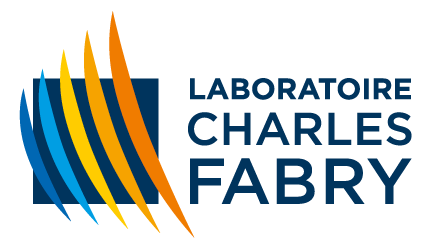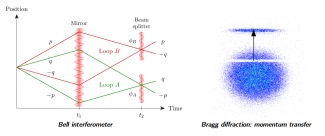Thesis defense of Charlie LEPRINCE
- Soutenance de Thèse
- Evénement scientifique
Thesis defense of Charlie LEPRINCE, PhD student in the Quantum gases group of the Laboratoire Charles Fabry, on Wednesday 05 June 2024 at 9:30am in the Amphithéâtre of the Institut d'Optique Graduate School in Palaiseau, on the topic: "Phase control and pulse shaping in Bragg diffraction for quantum atom optics. From matter-wave interferences to a Bell's inequality test".
Abstract: "Quantum mechanics predicts that for a system of two particles said to be entangled, one cannot independently describe each particle: the measurement of a physical observable on one particle also affects the other, regardless of the distance between the particles, leading to the observation of very strong correlations. To demonstrate entanglement, one can perform a Bell inequality test, which consists in conducting an experiment where quantum theory predicts stronger correlations than what could be obtained with classical theory. The project described in this thesis aims to implement a Bell interferometer involving momentum entangled metastable helium atoms. Starting from atoms prepared in a Bose-Einstein condensate, pairs of highly correlated atoms are emitted at different momenta through the four-wave mixing process. A pair of atoms is then sent into a two-particle interferometer with four momentum modes, which uses Bragg diffraction, i.e., a pair of laser beams tuned to coherently transfer momentum to the atoms and thus form atom mirrors and beam splitters. According to quantum mechanics, measuring the coincidence rates between the momentum modes of the two atoms at the output of the interferometer should result in observing an interference strong enough to violate a Bell's inequality.

